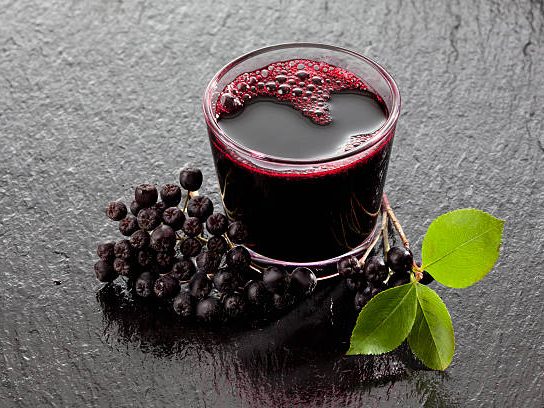I remember as a kid my grandmother having these dark purple berries in her garden, and it seemed like almost everyone in my country had them growing in garden. Back then, we just called them černý jeřáb (black chokeberry), and while we knew they were “good for you,” nobody really talked about the science behind why. Now, decades later, I’m discovering that those little berries my grandmother cherished might hold the key to managing histamine intolerance and allergies naturally.
What Are Aronia Berries and Why Did Our Ancestors Love Them?
Aronia berries, scientifically known as Aronia melanocarpa, are small, dark purple-black berries that have been treasured for generations. Originally from the wetlands of eastern North America, Native Americans used these berries as natural medicine for colds and respiratory issues – conditions we now understand often involve histamine responses.
The berries made their way to Europe through Russia around the 1700s, and by the time our grandparents were gardening, no proper garden was complete without at least one aronia bush. They instinctively knew these berries were medicinal, even if they couldn’t explain exactly why.
What they didn’t know back then was that these unassuming berries contain some of the most powerful natural antihistamine compounds found in nature. And thats just the start! These small but powerful berries are also great antioxidants, lowering inflammation, cholesterol, increase blood circulation and lower a blood sugar.
The Hidden Connection Between Aronia Berries and Histamine Relief
Here’s where things get really interesting for those of us dealing with allergies and histamine issues. Unlike many fruits that can actually trigger histamine reactions, Aronia berries are considered low-histamine foods that may actively help reduce histamine levels in your body .casadesante+1
Real Research, Real Results
A fascinating 2023 study found that Aronia extract significantly reduced histamine release from activated mast cells – the very cells responsible for allergic reactions. The researchers discovered that Aronia didn’t just mask symptoms; it actually prevented the inflammatory cascade that leads to allergic responses in the first place .pubmed.ncbi.nlm.nih+1
Why Aronia Berries Are Different from Other “Superfruits”
I’ve tried my fair share of superfruits over the years, but aronia berries stand out for several reasons:
They’re genuinely low-histamine: While berries like strawberries and citrus fruits can trigger histamine reactions in sensitive people, aronia berries are generally well-tolerated and may actually help reduce histamine levels .casadesante
They contain multiple beneficial compounds: Instead of just one active ingredient, aronia berries provide:
- Anthocyanins (the purple pigments that fight inflammation)
- Polyphenols (powerful antioxidants)
- Rutin (supports blood vessel health, just like in buckwheat)
- Vitamin C (natural antihistamine support)
- Essential minerals like potassium, calcium, and magnesium
They have a long history of safe use: Our grandparents weren’t wrong – generations of people have safely consumed these berries with beneficial effects.
The Taste Challenge and How to Overcome It
Let’s be honest – fresh aronia berries aren’t winning any taste contests. They’re called “chokeberries” for a reason! The berries have a naturally astringent, bitter taste due to their high tannin content. This is actually part of what makes them so beneficial, but it does present a practical challenge.
For fresh berries:
- Mix with honey or cream (my grandmother’s trick)
- Add to smoothies with other fruits
- Blend into homemade trail mix
Processed options that retain benefits:
- 100% aronia juice (start with small amounts)
- Dried berries for baking or snacking
- Aronia powder for smoothies
- Standardized extracts for consistent dosing
- Tea from dried berries

How to Add Aronia Berries to Your Anti-Histamine Diet
Based on my research and personal experimentation, here’s what seems to work best:
Start small: Begin with 1-2 tablespoons of dried berries or 2 ounces of juice daily
Choose quality sources: Look for organic, properly stored products
Be consistent: Benefits seem to build over time with regular use
Listen to your body: Some people notice improvements within days, others need weeks
References:
https://onlinelibrary.wiley.com/doi/10.1155/2014/457085
https://pmc.ncbi.nlm.nih.gov/articles/PMC10419027
https://pmc.ncbi.nlm.nih.gov/articles/PMC9696386
https://www.sciencedirect.com/science/article/pii/S2772566922000064
Further interesting reading:



Leave a Reply